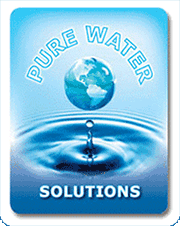Since Hydrogen Sulfide is a gas, you may need an onsite water test to verify Hydrogen Sulfide’s presence. Pure Water Solutions will perform a free 9 point water test for free and without obligation. Please call 541-890-2751
Hydrogen sulfide gas (H2S) can occur in wells anywhere including well water here in Southern Oregon. At concentrations present in household water it is usually not a health risk — except in very high concentrations — but it give water that “rotten egg” taste or odor.
The article below is detailed and informative to help you better understand why your water smells like rotten eggs. Please do not hesitate to call if you have any questions or need detailed information about your current situation.
Hydrogen Sulfide And Sulfur Bacteria In Well Water
Reprinted from an article by the Minnesota Rural Water Association.
Hydrogen sulfide gas (H2S) can occur in wells anywhere in Minnesota, and gives the water a characteristic “rotten egg” taste or odor. This brochure provides basic information about hydrogen sulfide gas and sulfur bacteria and discusses actions that you can take to minimize their effects.
What are the sources of hydrogen sulfide in well water and the water distribution system?
Hydrogen sulfide gas can result from a number of different sources. It can occur naturally in groundwater. It can be produced by certain “sulfur bacteria” in the groundwater, in the well, or in the water distribution system. It can be produced also by sulfur bacteria or chemical reactions inside water heaters. In rare instances, it can result from pollution. The source of the gas is important when considering treatment options.
Are sulfur bacteria or hydrogen sulfide harmful?
In most cases, the rotten egg smell does not relate to the sanitary quality of the water. However, in rare instances the gas may result from sewage or other pollution. It is a good idea to have the well tested for the standard sanitary tests of coliform bacteria and nitrate. Sulfur bacteria are not harmful, but hydrogen sulfide gas in the air can be hazardous at high levels. It is important to take steps to remove the gas from the water, or vent the gas to the atmosphere so that it will not collect in low-lying spaces, such as well pits, basements, or enclosed spaces, such as well houses. Only qualified people who have received special training and use proper safety procedures should enter a well pit or other enclosed space where hydrogen sulfide gas may be present.
Are there other problems associated with sulfur bacteria or hydrogen sulfide?
Yes. Sulfur bacteria produce a slime and can promote the growth of other bacteria, such as iron bacteria. The slime can clog wells, plumbing, and irrigation systems. Bacterial slime may be white, grey, black or reddish brown if associated with iron bacteria. Hydrogen sulfide gas in water can cause black stains on silverware and plumbing fixtures. It can also corrode pipes and other metal components of the water distribution system.
What causes hydrogen sulfide gas to form in groundwater?
Decay of organic matter such as vegetation, or chemical reactions with some sulfur-containing minerals in the soil and rock, may naturally create hydrogen sulfide in gas in groundwater. As groundwater moves through soil and rock formations containing minerals of sulfate, some of these minerals dissolve in the water. A unique group of bacteria, called “sulfur bacteria” or “sulfate-reducing bacteria” can change sulfate and other sulfur containing compounds, including natural organic materials, to hydrogen sulfide gas.
How is hydrogen sulfide gas produced in a water heater?
A water heater can provide an ideal environment for the conversion of sulfate to hydrogen sulfide gas. The water heater can produce hydrogen sulfide gas in two ways – creating a warm environment where sulfur bacteria can live, and sustaining a reaction between sulfate in the water and the water heater anode. A water heater usually contains a metal rod called an “anode,” which is installed to reduce corrosion of the water heater tank. The anode is usually made of magnesium metal, which can supply electrons that aid in the conversion of sulfate to hydrogen sulfide gas. The anode is 1/2 to 3/4 inches in diameter and 30 to 40 inches long.
How can I find the source of a hydrogen sulfide problem, and what can I do to eliminate it?
The odor of hydrogen sulfide gas can be detected in water at a very low level. Smell the water coming out of the hot and cold water faucets. Determine which faucets have the odor. The “rotten egg” smell will often be more noticeable from the hot water because more of the gas is vaporized. Your sense of smell becomes dulled quickly, so the best time to check is after you have been away from your home for a few hours. You can also have the water tested for hydrogen sulfide, sulfate, sulfur bacteria, and iron bacteria at an environmental testing laboratory. The cost of testing for hydrogen sulfide ranges from $20 to $50 depending on the type of test.
- If the smell is only from the hot water faucet the problem is likely to be in the water heater.
- If the smell is in both the hot and cold faucets, but only from the water treated by a water softener and not in the untreated water the problem is likely to be sulfur bacteria in the water softener.
- If the smell is strong when the water in both the hot and cold faucets is first turned on, and it diminishes or goes away after the water has run, or if the smell varies through time the problems is likely to be sulfur bacteria in the well or distribution system.
- If the smell is strong when the water in both the hot and cold faucets is first turned on and is more or less constant and persists with use the problem is likely to be hydrogen sulfide gas in the groundwater.
What can I do about a problem water heater?
Unless you are very familiar with the operation and maintenance of the water heater, you should contact a water system professional, such as a plumber, to do the work.
- Replace or remove the magnesium anode. Many water heaters have a magnesium anode, which is attached to a plug located on top of the water heater. It can be removed by turning off the water, releasing the pressure from the water heater, and unscrewing the plug. Be sure to plug the hole. Removal of the anode, however, may significantly decrease the life of the water heater. You may wish to consult with a reputable water heater dealer to determine if a replacement anode made of a different material, such as aluminum, can be installed. A replacement anode may provide corrosion protection without contributing to the production of hydrogen sulfide gas.
- Disinfect and flush the water heater with a chlorine bleach solution. Chlorination can kill sulfur bacteria, if done properly. If all bacteria are not destroyed by chlorination, the problem may return within a few weeks.
- Increase the water heater temperature to 160 degrees Fahrenheit (71 degrees Celsius) for several hours. This will destroy the sulfur bacteria. Flushing to remove the dead bacteria after treatment should control the odor problem.
CAUTION: Increasing the water heater temperature can be dangerous. Before proceeding, consult with the manufacturer or dealer regarding an operable pressure relief valve, and for other recommendations. Be sure to lower the thermostat setting and make certain the water temperature is reduced following treatment to prevent injury from scalding hot water and to avoid high energy costs.
What if sulfur bacteria are present in the well, the water distribution system, or the water softener?
- Have the well and distribution system disinfected by flushing with a strong chlorine solution (shock chlorination) as indicated in the “Well Disinfection” fact sheet from the Minnesota Department of Health (MDH). Sulfur bacteria can be difficult to remove once established in a well. Physical scrubbing of the well casing, use of special treatment chemicals, and agitation of the water may be necessary prior to chlorination to remove the bacteria, particularly if they are associated with another type of bacteria known as “iron bacteria”. Contact a licensed well contractor or a Minnesota Department of Health (MDH) well specialist for details.
- If the bacteria are in water treatment devices, such as a water softener, contact the manufacturer, the installer, or the MDH for information on the procedure for disinfecting the treatment devices.
What if hydrogen sulfide gas is in the groundwater?
The problem may only be eliminated by drilling a well into different formation capable of producing water that is free of hydrogen sulfide gas or connecting to an alternate water source, if available. However, there are several options available for treatment of water with hydrogen sulfide gas.
Other related references that are available from MDH include:
- Well Disinfection
- Iron Bacteria in Well Water
- Sulfate in Well Water
- Well Owner’s Handbook
Source: Minnesota Department of Health Fact Sheet/Brochure “Why Does My Water Smell Like Rotten Eggs? Hydrogen Sulfide and Sulfur Bacteria in Well Water”
If you are concerned or worried about the water quality in your home, please contact Pure Water Solutions.
541-890-2751
Free Onsite Test and No-Obligation Consultation
As Southern Oregon’s most trusted and reliable company for water filtration and treatment solutions, we are proud to provide service to the following Oregon communities:
Medford, Grants Pass, Ashland, Klamath Falls, Rogue River, Gold Hill, Shady Cove, Trail, Central Point, Eagle Point, White City, Phoenix, Talent, Jacksonville, Ruch, Applegate, Williams, Murphy, Selma, Cave Junction, and Brookings.

